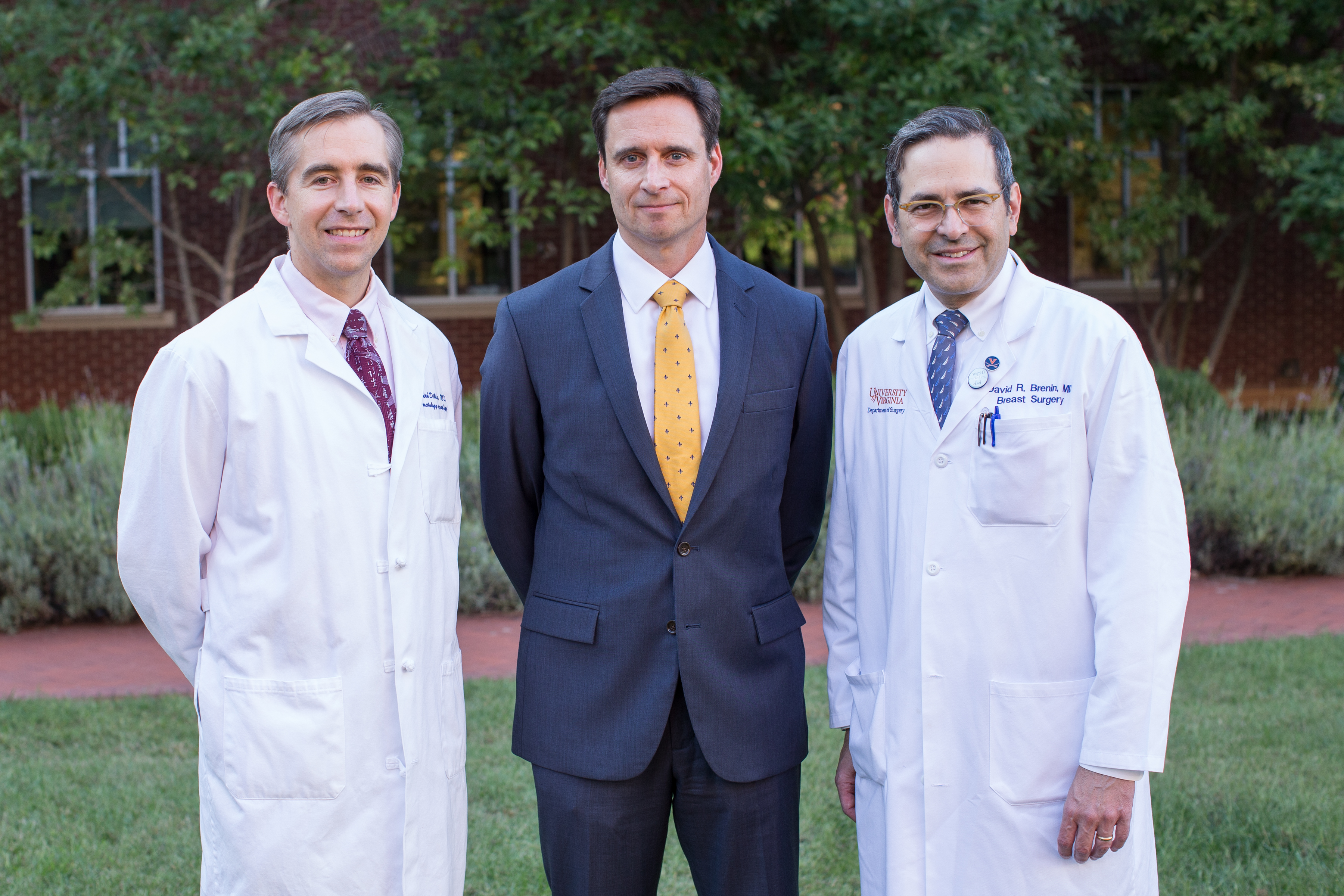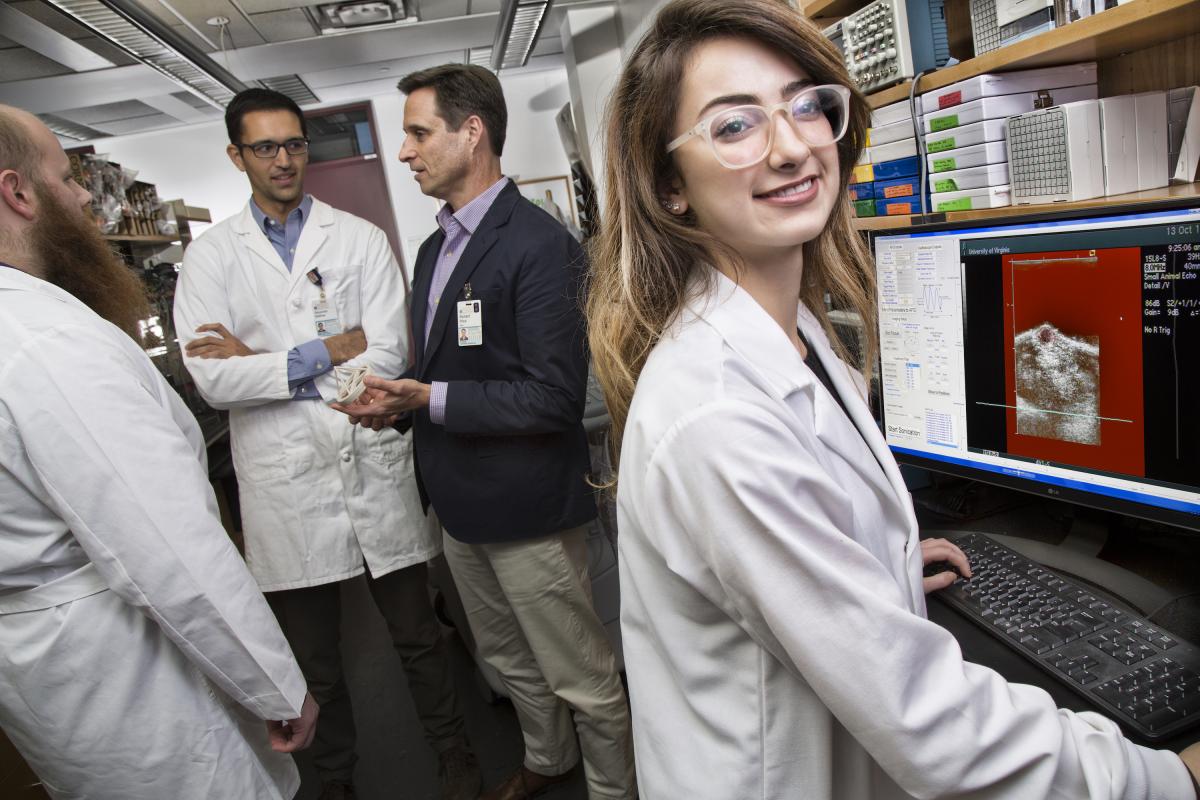Tackling Cancer Through Team Science
For patients suffering from metastatic breast cancer, where the disease has spread throughout the body, the survival rate is only 22%. These women and men face ongoing treatment for the rest of their lives, often with harsh side effects. Although treatable, there is no cure for metastatic disease.
The University of Virginia Health System is working to change that, and has launched a clinical trial that uses groundbreaking focused ultrasound technology to target metastatic breast cancer and make tumors responsive to immunotherapy—without surgery. The study is the first in the world to combine focused ultrasound and immunotherapy to treat breast cancer in humans. If successful, this clinical trial will provide new hope for patients diagnosed with this late stage of breast cancer.
While immunotherapy has proven effective at treating some cancers, such as melanoma, breast cancer is typically considered immunologically silent. As breast cancer grows, it produces certain proteins and antigens that allow it to evade recognition by the immune system. The breast cancer cells are not recognized as invasive, so the immune system doesn’t attack them.
“Breast cancer cells can ride under the radar of the body’s immune system so that it is tolerated and allowed to grow,” explains the study’s co-investigator David Brenin, MD, chief of breast cancer surgery at UVA and co-director of the UVA Breast Care Program.
Each patient in the trial will undergo focused ultrasound, a non-invasive procedure that directs multiple soundwaves to a single point inside the body—in this case, the site of the breast tumor. As these beams of ultrasound energy come together with pinpoint accuracy, they produce heat that damages diseased tissue. Brenin and his collaborators will determine the correct thermal dose to damage, but not completely ablate, the breast cancer cells. They hope the ablation will attract white blood cells to the tumor.

Each patient also will receive infusions of an immunotherapy drug to block the protective function of the breast cancer proteins and trigger a brisk immune system response. Researchers hope the medication will interfere with the protective functions of the tumor markers, allowing cancer-killing immune cells to recognize and attack the invasive cells.
“Those immune cells hopefully will educate the T-cells, or cancer-killing cells, to recognize the proteins or antigens of the breast cancer,” says UVA hematologist/oncologist Patrick Dillon, MD, principal investigator for the clinical trial. “Then, we hope they will destroy any cancer cells in the local site within the breast, but also circulate throughout the rest of the body, recognizing and destroying cancer cells that have deposited in distant sites such as the bones, lungs, or liver. The use of focused ultrasound acts almost like a vaccine in educating the immune system or stimulating a systemic immune response.”
This clinical trial is truly a cross-Grounds collaboration, with roots in basic scientific research. Brenin and Dillon partnered with biomedical engineer Richard Price, PhD, research director of the UVA Focused Ultrasound Center, and Tim Bullock, PhD, a basic science researcher specializing in immunotherapy and focused ultrasound, to develop the study. This team-based approach, involving scientists from different disciplines working together, is only possible at academic medical centers like UVA—and offers the best chance to make progress for cancer patients.
“There will be challenges, but at the end of the day, this has potential to affect millions of people with cancer,” says Price. “UVA has been a leader in unlocking the many positive benefits of focused ultrasound. This study allows us to magnify our expertise in the field and provides an opportunity to differentiate the institution.”

